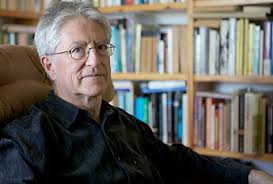
Jesús Mosterín (1941-2017)
Jesús Mosterín (Bilbao, 24 sept. 1941-Barcelona, 4 oct. 2017)On the 4th of October, 2017, we heard the sad news that AIPS member Jesús Mosterín passed away. He was a highly relevant intellectual in the Spanish milieu, and well known abroad for his contributions to the philosophy of cosmology and biology. It seems not too far-fetched to say that he was a Spanish Russell: a logician by training, founder of the Barcelona group in logic, who unfolded his talent and opened up his interests to a much broader range of issues, becoming a public figure. His views were always marked by a rational, objectivist approach to the questions at stake, which earned him a reputation of being ‘a rationalist.’ But he was, more than that, a thinker of life, of the value of life.Jesús Mosterín died of cancer caused by exposition to asbestos, an illness about which he spoke openly and with great lucidity two years ago (‘Una cita con la parca’, El País, March 2015). Lucidity is indeed something that comes naturally to mind when speaking of Jesús – an enlightened attitude, an openness of mind without dogmas, but with great rational demands.He began studying mathematical logic in Germany, Münster, before coming back to Spain and settling in Barcelona. After 1996, he would abandon the Univ. of Barcelona and become a member of the Consejo Superior de Investigaciones Científicas (CSIC). In his early phase, as professor at Barcelona and founder of its logic group, he published texts on elementary logic, on set theory, on second-order logic. But during the 1970s some experiences would change his life and orientation. He started working for the editorial house Salvat and collaborating with renowned naturalist Felix Rodriguez de la Fuente in the publication of an encyclopaedia of animal life, Fauna. This would lead to a life-long engagement with related topics, including his opposition to bullfighting, reflections on the question of animal rights, and the presidency of Proyecto Gran Simio (Great Ape). He wrote books such as ¡Vivan los animales!, A favor de los toros, El triunfo de la compasión, El reino de los animales and El derecho de los animales, as well as many papers on these issues, thus becoming a well known public figure in these debates in Spain and Latin America.As he wrote, “It is in our hands to take on the role of lucid guardians of the biosphere, or else abdicate our responsibility and become drunken witnesses of the disaster that we ourselves are causing.” En nuestras manos está asumir nuestro papel de guardianes lúcidos de la biosfera, o abdicar de nuestra responsabilidad y asistir como testigos borrachos al desastre que nosotros mismos estamos provocando.The expansion of Mosterín’s range of interests had become clear in 1978 with the publication of Racionalidad y acción humana (several editions up to 2008). In this and other works, such as Filosofía de la cultura, his approach was marked by a highly interdisciplinary perspective, combining ideas from science with philosophical reflections. In his approach to culture, e.g., he liked to emphasize the different forms of cultural life in animals, concluding that we are not the only cultural animal. This line of work culminated with the publication in 2006 of La naturaleza humana, a book in which Mosterín fights to establish the great role of biological traits in human life and behaviour, against philosophical (or other) attempts to insist on the indeterminacy of the human.Special mention deserves his Spanish edition of Kurt Gödel, Obras completas (Madrid: Alianza Editorial, 1981, 2006), uniting in a single volume all published works of Gödel, which came out before the English edition of collected works prepared by Feferman. And more recently the edition of Rudolf Carnap’s Untersuchungen zur allgemeinen Axiomatik, prepared with Thomas Bonk (Darmstadt: Wissenschaftliche Buchgesellschaft, 2000).A particularly relevant contribution to the literature in philosophy of physics is the paper written jointly with J. Earman, A critical look at inflationary cosmology. Philos. Sci. 66 (1999), no. 1, 1–49.The Spanish-speaking literature in philosophy of science is indebted to Mosterín for a very relevant reference book, the lengthy Diccionario de Lógica y Filosofía de la Ciencia, written in collaboration with Roberto Torretti (Madrid: Alianza Editorial, 2002; second edn. 2010). But there are many other contributions that could be mentioned here, among which I shall mention the book Conceptos y teorías en la ciencia (3rd edn, 2000). Los lógicos (2000, 2007), which offers highly readable presentations of the life and work of key figures in the history of modern logic – Frege, Russell, Cantor, Gödel, von Neumann, Turing. And the collection of papers Ciencia viva: Reflexiones sobre la aventura intelectual de nuestro tiempo (2001, 2006).All of these works have gone through two or more editions, which is a clear indication of the public following of Mosterín’s well-informed, clear and insightful discussions of intellectual topics. (by José Ferreirós)